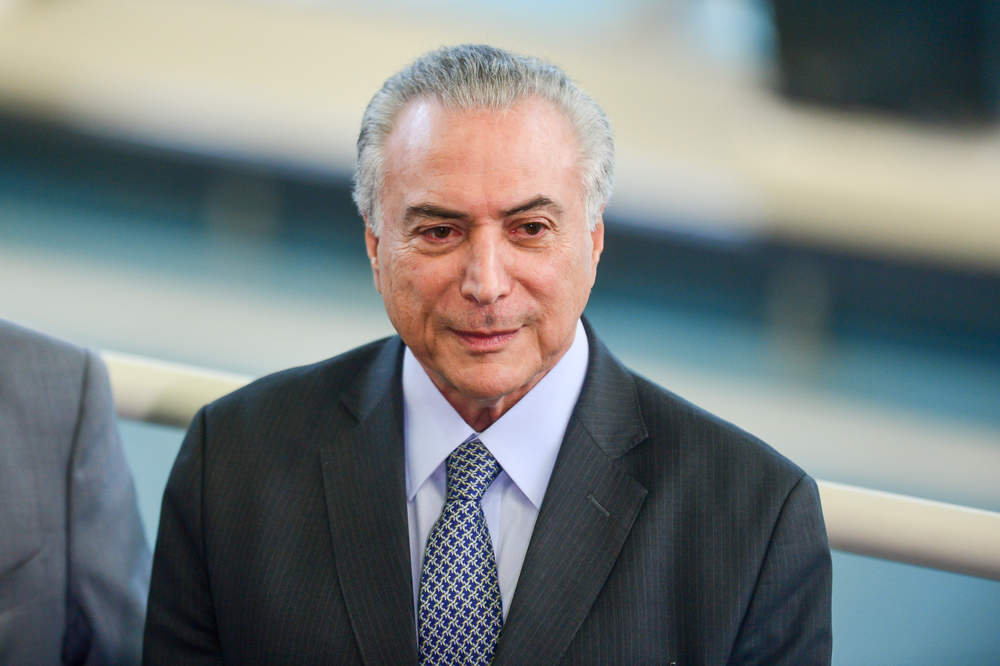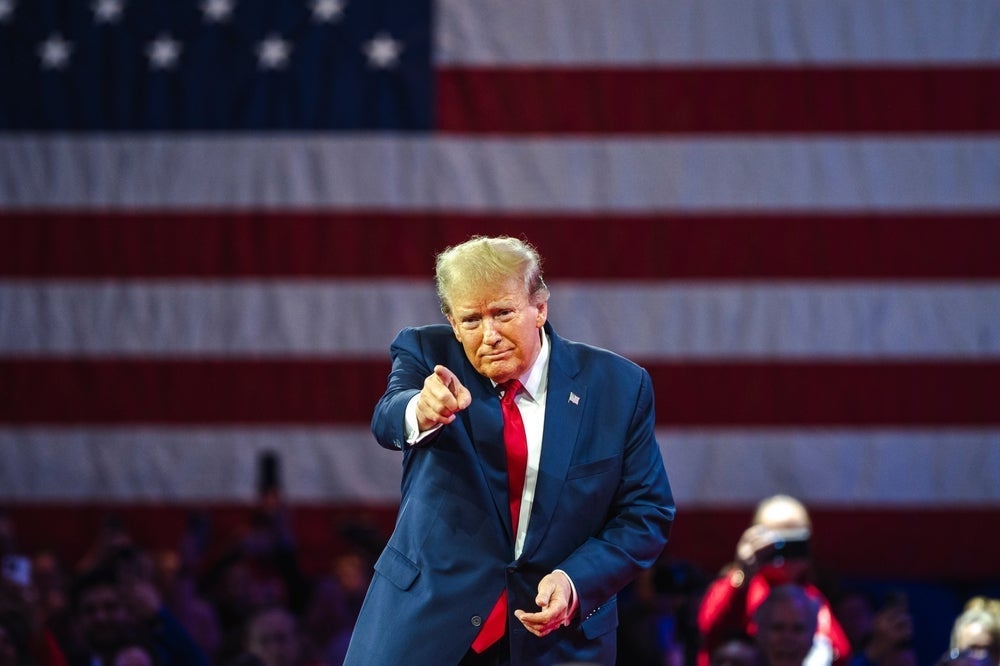
Brazilian president Michel Temer is currently facing impeachment as part of a seemingly ever growing corruption scandal.
Accused of receiving bribes in return for aiding several big businesses, the latest accusations are in fact the second time Temer has come under risk of removal in the just nine months he has held the presidency.
Initial allegations
Taking over from Dilma Rousseff in August of 2016, Rousseff herself impeached for breaking budgetary laws, Temer first came under scrutiny in November of that year when the former Minister of Culture, Marcelo Calero, raised allegations of corruption.
Having resigned from his position, Calero spoke out to say that the president had put him under pressure to allow construction that was currently being held up by heritage preservation measures.
The pressure seemingly came on behalf of government secretary Geddel Vieira Lima, who had invested in the development and would himself resign in the wake of the scandal.
With the shadow of Rousseff’s impeachment still hanging over Temer’s party, the accusations levelled are dangerous for a government that promised to clean up the corruption plaguing the country.
How well do you really know your competitors?
Access the most comprehensive Company Profiles on the market, powered by GlobalData. Save hours of research. Gain competitive edge.

Thank you!
Your download email will arrive shortly
Not ready to buy yet? Download a free sample
We are confident about the unique quality of our Company Profiles. However, we want you to make the most beneficial decision for your business, so we offer a free sample that you can download by submitting the below form
By GlobalDataThough he would deny the accusations, Temer did admit to talking to Calero about the project.
His defence team claims however that Calero misconstrued these conversations as constituting any pressure from the president.
The opposition party, however, determined that they would seek to launch impeachment proceedings against Temer.
The opposition’s stance has already been bolstered by Rousseff’s claims that her ousting was part of a political coup, rather than any illegal action on her part and gained further credence amid reports that Calero had recorded his discussions with Temer.
“If the recording shows that the president acted for the private interests of a minister against the public heritage, then the Temer presidency is over,” said José Roberto de Toledo, a columnist for the newspaper O Estado de S. Paulo.
Vice presidential vices
It is worth noting that Temer has come under fire for corruption even before he attained the presidency.
While serving as vice president, it was alleged that his party had received kickbacks from construction company Andrade Gutierrez in 2014.
Supposedly, $300,000 dollars made its way to Temer and the Brazilian Democratic Movement Party (PMDB), his party.
Adding fuel to the fire is Temer’s position in the Petrobras scandal.
Part of the Odebrecht conglomerate, itself the largest construction company in Latin America, Petrobras was caught up in investigations revealing corruption schemes within the company.
The allegations against the oil giant have seen the CEO of Odebrecht, Marcelo Odebrecht, sentenced to 19 years in prison for paying more than $30m in bribes.
The bribes were supposedly paid out largely to secure contracts with Petrobras. Temer’s links to the scandal come from Marcelo Odebrecht’s statement that he had made a donation of $3.3m to Temer.
The bribe was supposedly arranged during a 2014 dinner at the Vice-Presidential Palace, with Temer choosing the payment conditions.
The issue facing those attempting to remove Temer for crimes committed during his tenure as vice president is the question of whether impeachment operates the same for a vice president, given that the process is designed for removal of a president.
Proceedings were initially opened against Temer in December of 2015 but have since been delayed by the wait for the creation of a special committee to consider and review the impeachment.
O Globo tapes
On the 17 May the national newspaper O Globo leaked secret recordings of Temer in discussion with Joesley Batista, Chairman and CEO of JBS, Brazil’s biggest meat-packing firm.
The tapes seem to reveal Temer discussing bribes to to the former speaker of the lower house of Congress, Eduardo Cunha, in return for his silence on Temer’s implication in Operation Car Wash.
Operation Car Wash is the wide-ranging investigation into the corruption that saw Petrobras making deals with companies in exchange for bribes.
With a third of Temer’s cabinet under investigation for involvement in the scandal, and Cunha already in prison for his part, the new tapes could well spell the end for Temer’s presidency.
However, the President maintains his innocence and has said that he will request the Supreme Court suspend any investigation against him on the grounds of the tapes being “manipulated”.
Noting that the Folha de Sao Paulo newspaper reported the tapes as being edited, Temer also claimed that Batista was seeking to “cause chaos on the exchange market”.
As of yet, these claims are hard to verify and the country is forced to rely on his word alone.
“I have never bought anyone’s silence, haven’t obstructed justice and haven’t done anything against the judiciary,” Mr Temer said in a televised address at the presidential palace this Saturday.
Impeachment proceedings
Despite his request, the Supreme Court is unlikely to suspend the investigation into Temer, particularly given that they authorised the opening of the investigation in the first place and were the ones to order it made public.
Additionally, the support for impeachment has grown to unavoidable size.
In December, a poll found that 63 percent of Brazilians wanted Temer to resign.
Since then, Temer has seen his political power crumble further with the Brazilian Socialist Party announcing they would break from his coalition just before his speech on Saturday.
Leaders of several other parties in the coalition have also announced plans to consult with their members.
Just yesterday, Brazil’s bar association voted to back his impeachment with 25 to 1 in favour of an impeachment hearing.
Citing not only his own criminal actions but his failure to denounce the actions of his allies, the association said it would soon file its own request to the lower house of Congress for proceedings to begin against Temer.
At least eight pieces of proposed legislation to impeach Temer have so far been submitted to Congress.
Going forward, with a formal investigation now opened, Attorney general Rodrigo Janot will have to decide whether or not to submit his case for consideration by the Chamber of Deputies in Congress.
If at least two thirds of the lower house vote in favour, the case will then go to the top court to decide whether or not Temer must face trial.
Currently serving term until 2018, Temer has already been banned from running for office again for eight years as a result of violating election laws.
If it is decided that he must face trial he will face a suspension from office for as long as 180 days, a conviction will seem him permanently removed.
“Very few people believe that he’s going to stay in until the end of his term in end of 2018,” Marcos Casarin, head of Latin America macro research at Oxford Economics, told CNBC.
Casarin went so far as to say he believed there was a “100 percent” chance that Temer would resign.
Temer himself has denied that he will consider resignation and seems determined to fight the charges laid against him.
However, with his political allies fleeing and more legal evidence piling up against him, it may well be that resignation is his only hope to avoid the undoubtedly hefty judicial punishment that is likely to follow impeachment.







